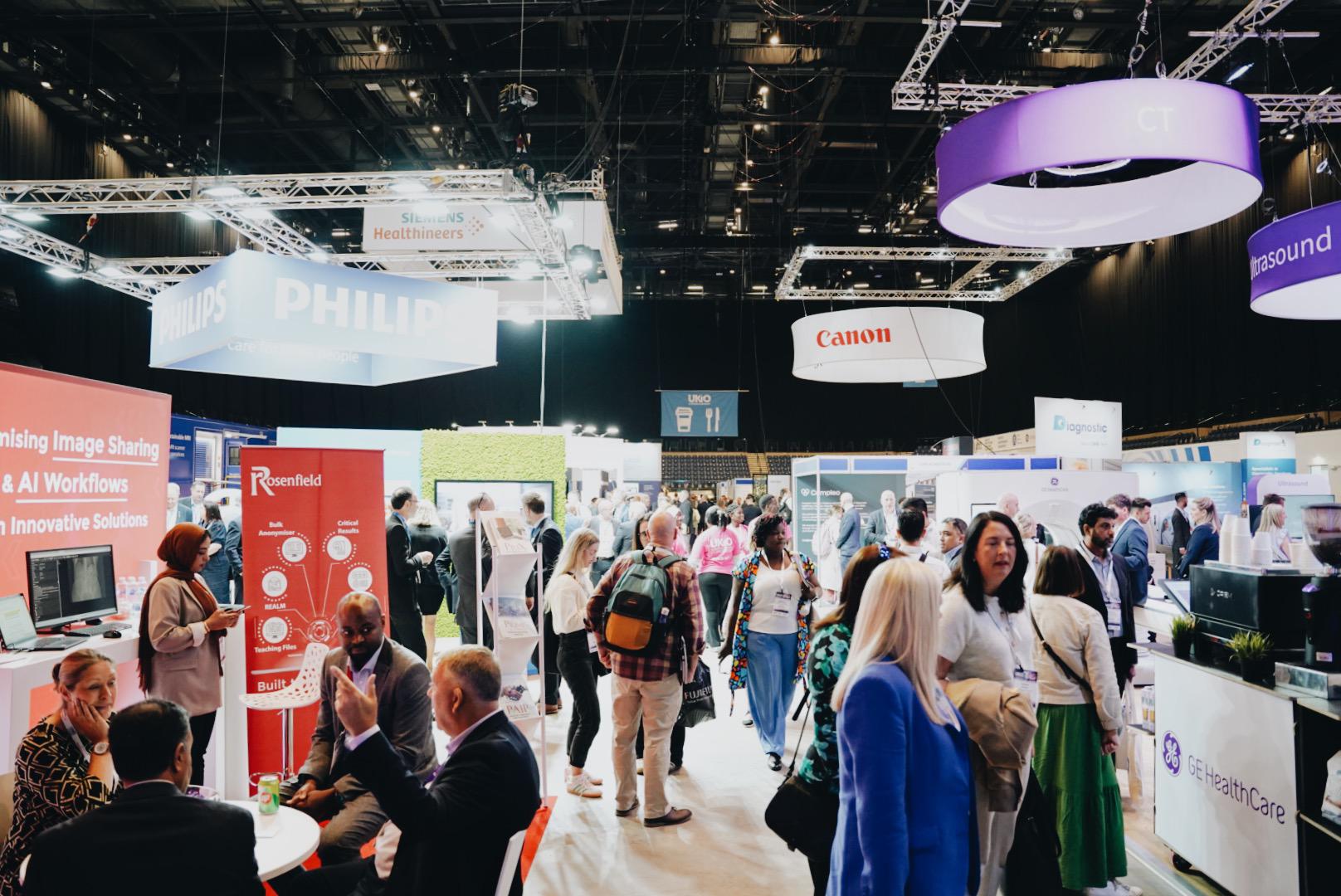
The third and final day of the UK Imaging and Oncology Congress (UKIO) concluded with a series of sessions exploring how radiographers can improve their practice and tackle larger healthcare challenges.
UKIO 2025 took place at the ACC Liverpool from 2-4 June.
Laura Charlesworth, professional officer for accreditation at the Society of Radiographers spoke at the College of Radiographers session ‘amplifying the patient voice’ to discuss her research into patients facing cancer who suffer from severe mental illness.
Sarah-Jane Myatt, a patient who had been interviewed by Laura as part of her research, shared a poem she had written about her own experiences in the healthcare system, entitled, “My Body Never Forgot.”
Sarah explained that it took two years for doctors to even examine her physically or conduct blood tests after she first reported her symptoms, with each one being attributed to her obesity. Once they did so, they discovered a 4kg ovarian tumour.
She said: “I’ve always been happy with who I am. Each time I went in [to hospital], there was this constant negativity towards my body. I’ve always been proud of how I’ve managed to get to this point in my life, because it was difficult. Hearing all the stigmatising language towards my body sent me deeper into depression.”
Empowering future radiographers
The final day of UKIO also saw the inaugural radiography games take place. Held this morning, the radiography games is a student session organised by Samantha Pilkington, a Diagnostic Radiographer and research associate at Shrewsbury & Telford Hospitals NHS Trust and UWE Bristol.
Hosted by Dr Fay Manning, a lecturer in medical imaging at the University of Exeter and Caitriona Hynes, a lecturer at Sheffield Hallam University, the games saw four contestants take on a number of gamified tasks designed to engage the student audience in attendance.
In one instance, contestants were asked to use red solo cups and small balls to demonstrate the different steps in making an x-ray and changing the nature of an x-ray.
Also during the session, contestants were given a random object and patient demographic and tasked with demonstrating how they would engage that demographic with the object. For example, contestant Dr Louise Burton, a lecturer in diagnostic radiography at the University of Liverpool, had to explain how she would engage a paediatric patient with her object, which were coasters with animals on them.
Drawing from her background as a paediatric radiographer, she told the student audience that paediatric radiographers tend to do a lot of distraction methods with paediatric patients. With her coasters, Louise gave the example of asking a paediatric patient what sound a certain animal makes.
Contestant Karran Speakman, co-programme lead in undergraduate diagnostic radiography at the University of Plymouth, said the session was thought-provoking and praised the gamified angle
“I thought it was innovative, inspiring, and future-evoking,” she told SoR News. “I think there are great opportunities for gamification in education.”
Qualitative research ‘gives a voice to people’
Another highlight today was the final eponymous lecture of the conference, the SCoR Martine Jackson Memorial Lecture. Expanding on the theme of ‘shining lights on untold stories’, Dr Rachel Harris – former head of professional practice and education at SCoR – told the audience in Hall 1C about the importance of keeping patient voice at the centre of treatment.
Rachel kicked off the lecture by emphasising the benefits of qualitative research – “What I love about it is that it gives a voice to people”. She added that qualitative research helps to prioritise patients as people, not just body parts, and recommended that attendees view it as a two-way street – you have to open yourself up to people in order to get that openess back.
Responding to the idea that healthcare providers might not always have time to get to know their patients, Rachel said that not only does it not take more time, but it could be beneficial in the long run as you will be more aware of the patient’s lifestyle and background.
To read the recap of UKIO 2025 day one, click here. The day two recap is available here.
(Image: Exhibition hall at UKIO, by Eva Slusarek)
